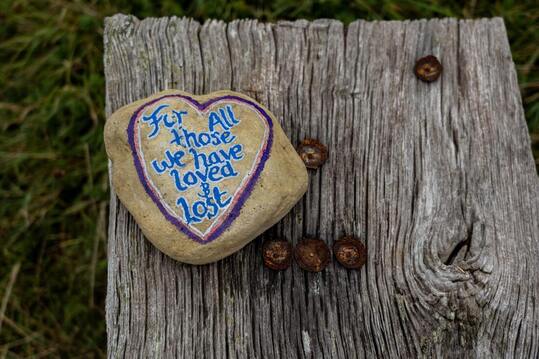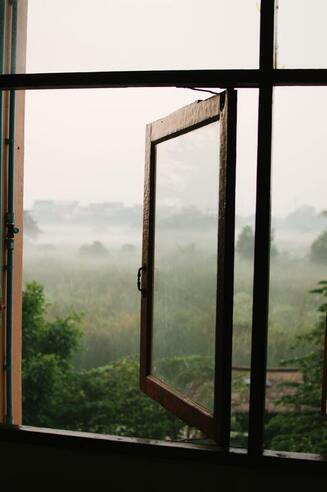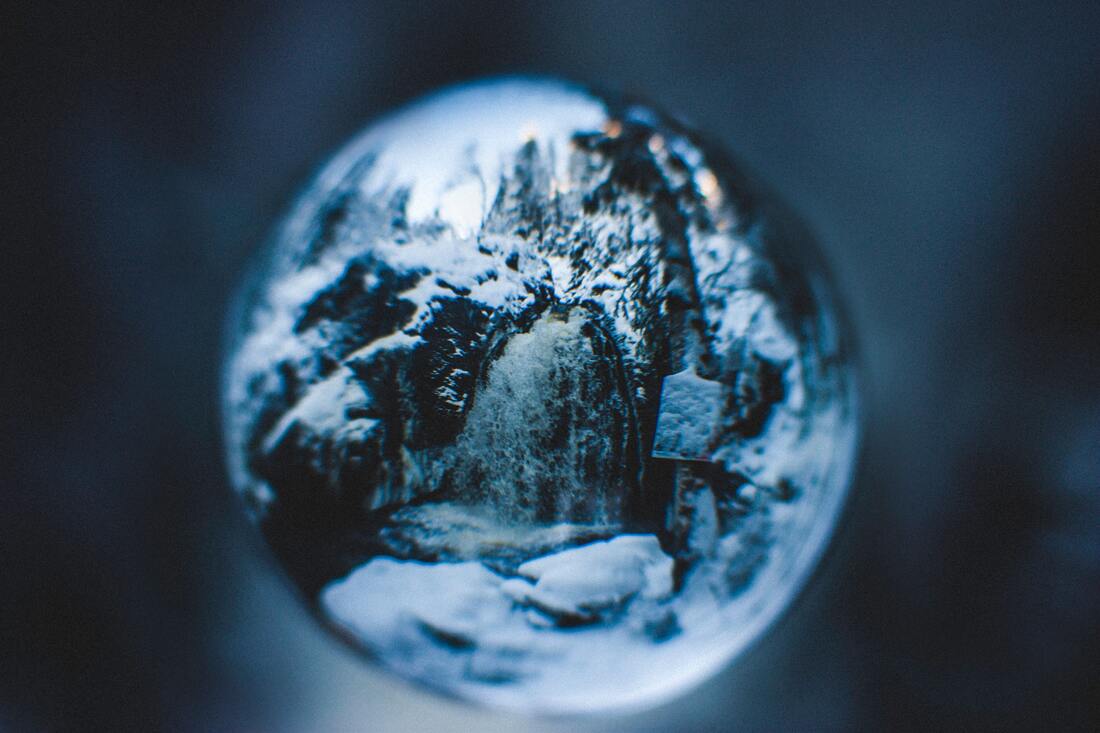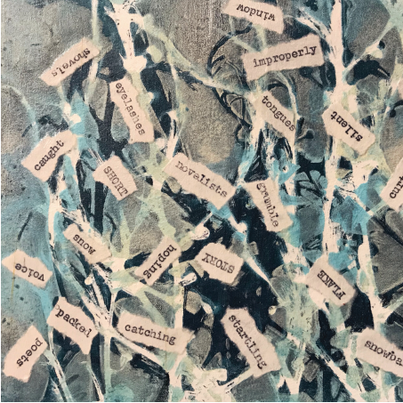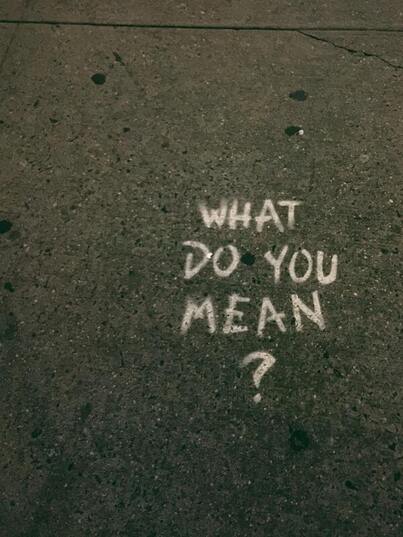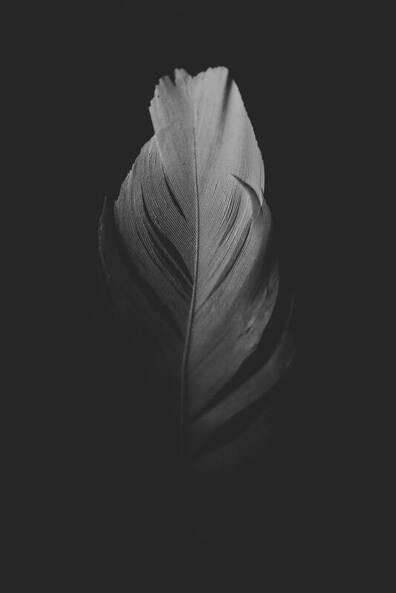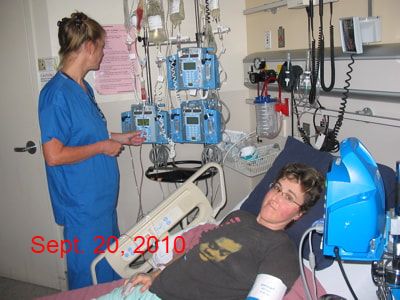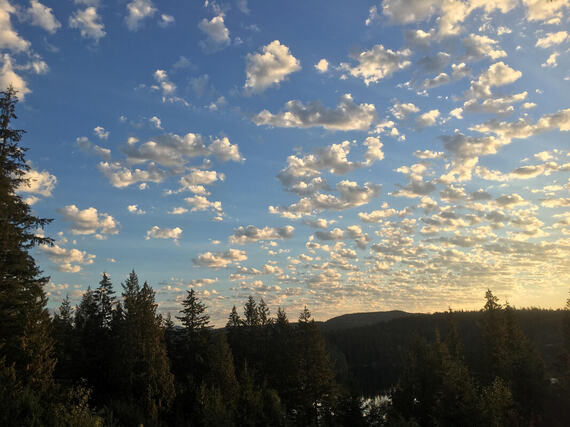|
Today, I find myself wondering about grief. Why is it so different for each of us? Do we ever really “get over” a major loss? Is it possible to follow someone else’s roadmap through the stages of grief? “Stages” sounds pretty linear and my grief is not linear. (Yes, I see the irony since I am a Type A Virgo who can’t make a bag lunch without a to-do list.) I would love grief to be linear. I would have my list completed in record time, boxes neatly checked, hair combed, ready to resume life. But it isn’t like that at all. Grief can blind side you anytime, anywhere. My dad died when I was 14. That’s 42 years ago. If you had asked me two weeks ago if I still grieved for my dad, I would have told you no. Without hesitation. I would have said my memories of him now are pleasant little surprises. Unexpected gifts. So, imagine my surprise when I had a minor meltdown last week after looking at a book about my dad. My sister compiled pictures from my dad’s photo album of his childhood, his emigration from Germany, and his early years in Canada. She also included some text that Dad had been dictating to Mom in the final months of his life. Actually, I didn’t cry when I read the book. I felt strange right after I read it – as though I was watching myself warily from the corner of the room. I put the book down and walked around it like it was booby-trapped. I felt raw and I remember wondering how long it would be before I would feel ready to look at it again. That evening, we watched a musical on television. A filming of the Broadway play, Come From Away. (You have GOT to see it!) Anyhow, there was a poignant moment in the show and I teared up. But the tears didn’t dry up. I actually started to cry a little, then more, then I had to ask my partner to pause the show because I “needed a break” and I started to sob. The last time I cried that hard was about 17 years ago – also about my dad. After my cry, we finished the show (Did I mention you must see it?) and then I tried to process what had happened. This wasn’t the first time that I’d seen new-to-me pictures of my dad. It wasn’t the pictures – it was his words. Hearing his “voice”. And the awareness of his potential, his enthusiasm, his resilience, all those dreams . . . and knowing it was all cut short at 43. When my sister and I talked about it today, she shared that she recently took a course about helping grieving children. Young children will grieve significant losses over and over as they grow up. They will feel their grief anew – and differently – as they move into each new developmental stage. That made me realize that I no longer grieve my loss when I think about my dad, I grieve his loss. I grieve that he never met the adult me, or any of his grandchildren, or great grandchildren. I grieve that he never got the farm he always dreamed of. I grieve all the things he never got to do. And in the next moment, after that deep sadness, I become aware that I have met his grandchildren. And his great grandchildren. I don’t have a farm, but I am living my perfect life. It made me so profoundly grateful to be alive and to have all that I have – love, health, home. By our fifties, most of us have experienced some significant loss. My most significant loss was early, and largely ungrieved at the time (but that’s a story for another day.) When I was crying last week, I felt like I was my 14-year-old self. It has taken many years to do the work of grieving; to feel that I am “over” that loss. And then, an unexpected trigger brings it all back. But that’s okay. I welcome the opportunity to purge my heart of whatever tears have been accumulating for my dad – and all my other losses. And then I opt to share my grief with you. That is to illustrate a point: I believe when we share our stories with others, healing takes place. I believe listening to each other’s stories of grief and loss is a sacred responsibility in our friendships. I like to imagine a world where we are more comfortable with grief. A world in which someone could just say, I’m grieving, as they stood in the middle of the sidewalk crying, and a stranger passing by would nod their understanding, stand silently with them while they cried, then go on their way. Grief is as individual as DNA. What works for me might be useless for you. But I have always found it helpful to hear how others understand and process their grief. Years ago, in a novel, I read a short paragraph about grief which, for me, was the perfect analogy. “Grief is a most peculiar thing; we're so helpless in the face of it. It's like a window that will simply open of its own accord. The room grows cold, and we can do nothing but shiver. But it opens a little less each time, and a little less; and one day we wonder what has become of it.” Arthur Golden, Memoirs of a Geisha My grief window has opened, but only a tiny bit, and I trust the window will close soon enough. If you are being visited by grief today, may your memories be the blanket that protects you from the chill until the window closes again. Image by Hannah Tims on Unsplash
2 Comments
Image by Tobias Bjerknes On the first day of 2022, my thoughts match the scene outside my window - snowflakes in the wind. I want to gather them, organize them into something coherent - a whimsical snowman perhaps. Or a defensive snow fort. Or a deftly-aimed snowball. But for a moment, I sit and stare out the window, allowing my thoughts to play in the wind; to fall and dance. I will follow the random magic of my mental snow globe for a bit . . . This morning my mom called. In her globe she was looking at the snowy memories of her childhood, riding across the Saskatchewan prairie in the cutter, off to the Christmas party at the one-room school house. She shared a story I'd never heard before - an accident in which a loose team of horses collided with their cutter, rolling it over. Her father opened the cutter door to hooves stabbing at them as the entangled horse kicked and struggled to free itself. How was no-one hurt? I asked. Just one of those things, she replied. How the world has changed since cutters and sleighs. In my mind's eye, I follow a cutter gliding across a white, moonlit prairie until eventually my reluctant imagination brings it to a road, an intersection perhaps, where grandpa yells 'whoa' and pulls the horses up to wait as a Tesla zooms by. Everything feels juxtaposed today. The start of a new year in the midst of an old pandemic. A weary world rejoices. Does it, though? Stories no longer seem to provide a balm. Not stories of manger births. Not stories of heroic nurses. Not stories of supportive communities and selfless neighbours. We discard old stories with restless impatience. Our new stories bare sharp edges. As we isolate ourselves to protect those who scoff, our loneliness grows into frustration. As hospitals fill with those who chose not to vaccinate, and surgeries and cancer treatments are cancelled, our frustration grows into anxiety. Eventually, almost inevitably, our anxiety turns to anger. We lash out like small children churlishly crying out for connection. We create chasms precisely where we long for bridges. Last night, the cold air lacked the cleansing quality it often carries for me on New Year's Eve. The chill did not burn out the old to make room for the new. Rather, it stiffened my back and raised my head; not in anticipation of a fresh start, but in an unconscious resolve; a grim determination to carry on. But isn't that the main ingredient of hope? The ability to raise our heads, to resolve to move forward and then to actually take a step. And another. I shake the snow globe in my head, send the snowflakes flying again and now I see myself driving through a blizzard. The wind drives the snow at the windshield creating a hypnotic kaleidoscope that lulls me toward sleep. The heater and the steady thunk, thunk of the wipers sing me a lullaby. My fingers relax on the steering wheel. If I close my eyes for just a second, they will stop burning. In that long blink, the tires bounce against the edge of the ruts they have been following for miles. The skid sends my heart into my throat, reminds me that pulling off the road is no longer an option. I lean forward, tighten my grip, look past the flakes, past their mesmerizing pattern. I squint into the distance and see two red dots. Tail lights of the car ahead. I train my eyes on those, I refuse to see the storm. The blizzard is no less intense, but I have to look past it, or it will swallow me. Time to put down my snow globe and take a step into this new year, whatever it brings. I'm going to try to look past the present storm - find one small thing to focus on and move forward. I will leave you with a poem written in lighter times. And with it, hopefully, a smile. Word Storm A curtain of snow falls outside my window - each silent flake a word - hoping to be caught - given voice. The poets, improperly dressed for such weather, are already out there, catching single words on their tongues and eyelashes. Short story writers hurl tightly packed snowballs with startling accuracy. Novelists grumble at these antics as they bundle up and grab their shovels. Someone has to clear a path through all these words. M.N. "Word Storm" by Janny Thompson
Image by Daniela Diaz I want a refund!
I was told there would be wisdom with age. That I would be less volatile, calmer. I have a very clear mental picture of myself, looking all sage and serene, just nodding knowingly as all hell breaks loose around me . . . But that isn’t how it’s panning out. My excuses for this disappointing development range from menopause (and it’s crazy-ass medications) to the pandemic to living in a construction zone and a whole lotta nothing in between. The reality is that I am scrounging around the back of a very cluttered closet to try to find my equilibrium. I’m the first to admit that I am not naturally placid. I am emotional and prone to being reactive. But tell me if this sounds weird; I was just messaging with a friend trying to find a time for the two of us to have a visit, and I ended up with my head on the desk, crying. (It’s all set up, by the way. That wasn’t the problem.) It’s never about the incident. I can name various innocuous triggers from recent weeks that have ended with my head down on my desk, me crying. Another rejection from a publisher: tears. Sore wrist when I’m trying to type: tears. Power outage: tears. Now, so far, these may sound like reasonable reasons for tears, but let’s look closer, shall we? That is about my hundredth rejection from a publisher, my wrist has been sore for always, and the power goes out at my house like the garbage truck comes to yours. But without a schedule. These are normal events in my life but recently, I just can’t deal. Yesterday I cried because I couldn’t figure out how to work a new app on my computer. (Never in the history of my life have I figured out an app on my own. Suddenly, my ineptitude is a crushing blow. What??) The day before yesterday, I cried because I went to put on my boots to go for a walk and they were wet. On at least two occasions in the past week, I have cried during a sitcom. I cried when I made my coffee too weak, I cried when I spilled the baby powder, and I cried when I buttoned my shirt wrong. (This is also something I do with disconcerting regularity.) This emotional rollercoaster feels a lot like the first few months of perimenopause when I was afraid to leave the house in case I killed someone. And now here we go again! I’m supposed to be winding down on the hormonal surges and entering the wise crone stage and I can’t peel a banana without a minor break down. So, having spent way too much time trying to figure out where the emotional landmines are coming from, I am now focussing solely on how to get through the field each day. First of all, if the tears come, they come. Who am to say whether they are serving a purpose or not? I don’t try to stop it, I just get to a private place and let ‘er rip. As I said, there have been a lot of them at my desk. I might put a small pillow there, beside the tissues. Second, I change gears as soon as the tears are slowing down. Like most people, I can blubber my way through quite a list of real and imagined grievances to keep the cry on, but that’s not helpful right now. I switch to another task or activity. Preferably one that involves movement. If time permits, I have a workout or go for a walk. I remain a big believer in the gratitude list – that always helps. But I want to be proactive and so I am trying to be more regulated in my daily regime. The biggest part of that is to start my day properly. I think I have shared this before, but it is still the best way for me to start the day (especially if I am hoping to get through it without any major breakdowns). I go into my office (one really must have a room of one’s own) and I read from Embers by Richard Wagamese. I light some sage, recite my morning meditation and then sit in my comfy chair and meditate for a few minutes. Not long, just enough to still my mind and feel my heart loosen, open, expand. Then I try to write. Sometimes I don’t get past the pipe cleaning. That’s the first writing of the day where I cough up the emotional flem. Some people call these morning pages, or daily journal, or freewriting. I usually call it fire pages, because that is where my pages go – into the fire. This is where I complain and whine and grouse about every little thing that might be hanging around in my psyche. I clear the pipes. This morning I did it on my computer and just deleted everything. (Then my computer froze and I cried.) Hopefully, once I’ve coughed up my crazies, I can get to some original writing. If not, I go straight to an ongoing project. I drink as much water as I can, I try not to look at my to-do list until late morning, and I plan some sort of exercise for whenever the muse leaves the room. (My muse is a bit of a task-master and generally ends our sessions by slamming my office door and yelling, “Smoke ‘em if you got ‘em!”) Anyway, I’m telling you this to make myself accountable for doing the things I know help with my emotional wonkiness. I’ve said I’m doing it, so now I gotta’ do it, see? One last thing, if you see me sobbing in the grocery store, just pretend you don’t recognize me and keep moving. It’s probably just a milk thing. Image by Jon Tyson I'm not sayin', I'm just sayin' . . .
This profound statement was brought into my life by the Hanna sisters, Jackie and Kim. They were my sometimes line-mates on the hockey club that let me stay on the team even after they saw me skate because my house was perfect for the team Christmas party. Kim and Jackie, like all siblings, had their own communication style, with its unique phrases and layered nuances. Often, their conversation would end as they came into the change room before a game and one or the other would adjourn the conversation with the words, "I'm not sayin', I'm just sayin'!" I was always impressed with how much they conveyed with that spicy configuration of words. Sometimes, it meant, "Let's finish this later." Sometimes it meant, "I don't want to talk about this anymore. Ever." Sometimes it meant, "I hear you, but maybe you should rethink this." It meant, "I didn't mean to offend you, but that's how I feel about it." It meant, "Don't be upset, I still love you even though I think you're wrong." And of course, sometimes it meant, "Shut your festering gob." The line was multi-faceted for the Hanna sisters because they are sisters. Which word did she emphasize? Was she looking at her sister or away from her? What was her body language saying? And tone? Oh, so much to glean from the tone! Then there is context. What were they discussing? And what had they been discussing earlier in the day? Or yesterday? Or last year? Or when they were teenagers? You see my point. Context is everything. Tone and body language are huge. But words? Not so much. That's what makes language so interesting. To be attuned to the malleability of language is also to be attuned to its fallibility. When we first begin to learn language, it is fairly simple. A two-year-old points to a guitar ands asks, what's this? The answer is, It's a guitar. But as we grow and learn, those two words could mean something completely different. For example, a spouse points to a guitar and says, What's this? Their partner knows exactly what they are really asking: Why is your guitar out? You promised we would do something together tonight. As I sit here wondering about words, I am alone in my house and so I look up the word solitude. It is a very simple definition. Solitude, says the Oxford Canadian Dictionary, is the state of being alone. Hmm. I am in solitude right now. Yet, that’s not the right word in my mind. I would say that I am in solitude when I have taken myself out of my regular day to day context and chosen to be alone for some specific purpose. Usually, it is to write. The word solitude for me is a positive, exciting word. It denotes a choice on my part, and so I have already moved away from the dictionary definition's placid 'state of being'. However, my thesaurus suggests that the word isolation is interchangeable with privacy, seclusion, isolation, and even loneliness. As you read the list, each of you will have a different opinion about which of those terms fits best with solitude. For me, each of those words evokes a different sphere of experience and feeling. And none of them matches my personal definition of solitude. So, when I tell you that I have spent a lot of time in solitude lately, I am sharing good news. You likely have someone in your life who could say the same words and it would mean something completely different and would evoke very different emotions. I think the reason this topic fascinates me so much, is because my writing, fiction and non-fiction, is driven by my desire to understand people. Others and through them, myself. So really, if you want to truly understand someone, you need to speak their language - THEIR language. And that is a commitment. Language is a living, evolving thing. To truly understand another person takes a huge amount of effort and time. I have lived with my partner for 33 years and while I have a good grasp of "Shannonese", I can still be surprised by evolving definitions or new nuances. Life experiences also change our relationship to words and so many words at 55 years of age have very different layers of meaning than they did at 33. Many words with which I had only a theoretical relationship are now small lexicons of their own. Cancer. How you respond emotionally to that word has nothing to do with a dictionary definition, does it? Ah, language! It can lift us up and it can trip us up. As usual, I am not offering answers or insights. I'm just sitting here wondering. I will say this, though. The language centre in the brain is an amazing thing, but I can't understand nothin' about nothin' if my heart isn't involved. I'm not sayin', I'm just sayin'. “I think you have three choices,” says my wise friend when I ask him how he stays joyful in this world on the brink. “You can live in ignorance,” (Been there, done that.) “You can live in despair,” (Got the t-shirt.) “Or you can live in hope.” Well, that sounds good, let’s do that, I say. But it’s not so simple, is it? Hope, says Emily Dickinson, is the thing with feathers that perches in the soul and sings the tune without the words and never stops at all. Great, Em, says I, but how do you get the feathered thing to stay with you? That’s what I’m wondering today as I sit on my deck in the cool morning and listen to the birds. I can’t see them all, but I know they’re there. I hear that beautiful chorus. I want them to feel safe in my yard, to want to visit me, so I sit quietly with my heart open and ready. I silently invite these feathered beings to be with me today. And I will invite them again tomorrow. And when the rains come and their song is harder to hear, I will just have to trust that they are still out there and invite them over and over, and never stop at all. It’s 10:00 a.m. on a Saturday, and so far today, I have reorganized my office, burst into tears when I saw a picture of a lamb, started six emails and finished one, danced to a good song, ate Egg-in-a-Hole for the first time in about five years (in response to a wave of nostalgic cravings), wrapped a present for someone I probably won’t get to see at Christmas, stared at a picture of my great-niece for about ten minutes straight, went on a deranged search for tissue paper, cleaned the toilet, had an argument with myself and lost, balanced my cheque book and then ranted (to a picture of a dog) about the fact that banks don’t supply cheque book registers anymore.
Today’s topic is mental health. Generally, I consider myself a fairly well-adjusted adult. Apart from menopause, I have never had to seek treatment for anything in the realm of mental health—and I know how lucky I am. Perimenopause, with its hormone surges, created mood swings that made me think my cheese was sliding off my cracker until I realized what was happening. That was the first time in my life that I really thought about my mental health. And this is the second. Living with a global pandemic is a whole new thang for all of us. We are in uncharted waters, and none of us can predict how we will react within this new set of variables. My life has been relatively unaffected by the pandemic, yet I am aware of the ambient stress in the air, the fear that hangs over our world like a global weather warning. We need to pay more attention to our overall well-being. Perhaps this is one of the benefits of this difficult time – it is pushing us to think and talk about our own mental health. Few of us are shy about discussing physical health: exercise, diet, sleep. We love to talk about our aches and pains and ailments. Why do we lower our voices when we say, mental health? I am not lowering my voice. As I told my students last week, sometimes I am the last to know when I am feeling dysregulated. We talked together about a situation last week, where I bawled them out about leaving their basketballs outside in the rain. I had been mid-rant when I heard myself, and realized I was discombobulated. I also shared with them how I got myself regulated again. At home, I clue in to my dysregulation when I notice certain “red flag” behaviours in myself: like getting up in the middle of a conversation to straighten a picture on the wall, or cleaning the kitchen counter for the 80th time in a row. One of the things I am most grateful for in my life is a partner who will talk me down when I ask her to. I know I can count on her to gently suggest that I do something to self-regulate when she finds me cleaning the bottom of the sliding door with a Q-tip, or flipping out about the lack of space in the refrigerator. Lately, there’s been a lot more of these “unexpected reactions.” They are both a sign and a symptom to let me know it’s time to pay attention to my mental well-being. The other red flag is what I call glitch capacity. Now, under normal circumstances, I have a typical glitch capacity. Not as high as some, not as low as others. I think I can safely say that most parents have a higher glitch capacity than I have. All the practice, I imagine. But I can handle glitches as well as the next seasoned teacher. They are, after all, part of the job. But, like most of us, when I am feeling worn out or ill, my glitch capacity falls. In these circumstances, I might have a more difficult time dealing with some little snafu that comes up. In spite of NOT feeling ill or worn out, I have noticed my glitch capacity dropping steadily since the pandemic began. Once upon a time, being stranded overnight with a bus full of teenage volleyball players during a blizzard in northern Manitoba registered as slightly inconvenient. In my present emotional state, the afore-mentioned wet basketballs almost caused a meltdown of epic proportions. A few months ago, the little hiccups of life barely registered as glitches. Now, they can cause tears, immobilization, indecision, panic . . . all manner of unexpected reactions. And being someone who is not used to these reactions, they can be upsetting, embarrassing, even a little scary sometimes. What to do? As always, I ask myself, what I would say to a student who was experiencing this? I would tell them not to worry, assure them that it was temporary, explain that it is probably just a sign of heightened anxiety and perfectly understandable. I would soothe them, cajole them, and distract them. So, Mon, don’t worry. Your cheese is fine and your cracker’s never been all that steady anyhow. But you’re okay. Feelings are feelings, not facts. Why don’t we go for a nice, long walk? Today is September 19, 2020. As I went for what will presumably be one of the last swims of the season, I reflected on an upcoming marker in my life: Tomorrow is the ten year anniversary of my partner Shannon's stem cell transplant. As I often do, I left some tears in the safekeeping of the lake water. But today they were all gratitude, those tears. A heartful.
The world we are living in today affords us many reminders of our mortality and perhaps that is why I feel so especially lucky. Everyday is a gift. Even with the challenges and struggles we all face from time to time, every day with my best friend feels like beautiful, bountiful bonus time. 3650 days and counting. Every one of them a gift. I think there is value in looking back once in a while. And as I look back to September 20, 2010 and see how far we've come, I feel grateful, lucky, and a little bit proud. Below is a link to a reading of a piece I wrote ten years ago, when we were in the thick of it. I’m not usually one for true blogging – no editing; just sit down, write, and post. But I need to process and I feel drawn to the page to do it. As always, my Virgo brain, god bless it, wants to sort, categorize and summarize these thoughts into some manageable framework. That’s how I make sense of my world and how I cope, I guess. Believe me, sometimes I wish I could just sit in the middle of the emotional storm and let it rain, but that’s not how I roll.
I have been thinking a lot about my mind and how it manages the vast differences between my logical brain and my illogical heart. In fact, I am going to share a journal entry from March, just before the world changed gears. I want a mind that . . .
And days later, a time of challenge arrives on my doorstep and I am instantly pulled back into old patterns of thinking by my anxiety. Then, once I have adjusted to my new normal, the house of cards we call our “social structure” starts to wobble and I’m back in my head again. So, here I sit this morning, watching my mind trying to take charge and reason everything out. But my heart is bewildered. It mourns, it’s anxious, it’s full of wonder and joy one minute and it’s breaking the next. There is room for the whole planet in there; there is only room for me and my loved ones in there. My heart is a two-year old child who is experiencing new emotions and has no idea what to do with them. Well, I wouldn’t yell at a two-year-old and I’m not going to yell at my heart. Hey soul, step in here and mediate will ya? Quiet my mind and make room for my tumultuous heart. This kinda sounds like a job for meditation, doesn't it? I’m off to sit. Thanks for listening, friends. I’m sitting on the deck with my morning coffee as I write this. The birds are busting with excitement about something – most likely, the big news is that they are alive for another day. Welcome to my happy place. This spot is a touchstone for me. I know this view and I know that the only people I might see from this vantage point will be friends. I know that I am safe here. Just me, my partner, my coffee and fifty of my closest bird friends. This feeling of security is so important right now. I imagine that in households everywhere, we are all – consciously or unconsciously – drawn to the places, people, activities, and maybe even foods that make us feel safe. Some of those things may not be accessible right now, so we find other ways to recreate the feelings associated with them. It is interesting to me that feelings of personal safety can be created in such a variety of ways. In times of perceived danger, we suddenly become more conscious of what makes us feel safe and so I have been sitting here thinking about the ways I seek that in my own life. In 1998, my partner’s mother spent the last two months of her life in a coma. My partner and I were both teaching full time and would go to the hospital in the evenings and on the weekends. During that difficult time, our home was certainly our touchstone, but we found we needed something more. Our daily lives needed to go on during those two months; the activities of “normal” life took place in every room in our home – except in The Fort. I don’t remember precisely when we created it, but I remember how important it became in those two months. It wasn’t really a fort, of course, but rather a designated safe spot. We put futons on the floor in front of the couch, added comfy pillows and soft blankets, moved a side table within reach, and placed there a box of tissue, the remote control, a selection of favourite movies, and favourite snacks we normally wouldn’t indulge in. I remember licorice and potato chips. When daily life became too overwhelming, we would get into our jammies and head for the fort. We used “fort time” as a way to let each other know when we needed to escape. It was a tiny corner of safety in a very uncertain time. One of the most difficult times in my life was when my partner had leukemia and needed a stem cell transplant. For this, we had to leave our home and relocate to Vancouver. We had a comfortable place to live for those six months, but it wasn’t my home. I never felt completely safe there, but it wasn’t because I was in someone else’s home, it was because my true home – my partner – was in jeopardy. We were together, which made us feel as safe as was possible in our tenuous situation. I have included a clip of video today, because it got me thinking about all this in the first place. I went hiking last weekend and visited a lovely set of falls. I climbed out onto a large, flat rock and from there, I took the video below. Everything around me was moving. It was fast, loud and chaotic. Water ran at various speeds and seemingly in different directions. Yet I was completely safe and secure in the midst of all that turmoil. My rock didn’t shift or even wiggle. It was solid and I felt safe from the dangerous swirls all about me. And I thought about COVID 19 and this strange era in our lives. I thought about how we each need to find our rock from which we can observe what is going on around us with curiosity and compassion; where, if necessary, we could safely extend a hand to someone caught in the current. There is no doubt that for me, my partner is my rock. I love our home – this deck – this safe place. But we survived our toughest time away from our home. As long as we’re together . . . we have said to each other in every scary time over the past 32 years. No better time than now to reflect on who your rock is. Have you told them lately? I generally avoid commenting on anything political because I am usually willfully uninformed. I don’t watch the news every day. Or even every week. I have whole-heartedly embraced the slogan, Ignorance is Bliss. And while I say this lightly, it is essentially true. I honestly don’t know how people can watch the news several times a day. My spirit would be dragging behind me like a bag full of dirt.
Part of my discomfort with listening to the news is the format in which most information moves in this day and age. I remember a time when hearing both sides of an issue was considered a good thing. I remember when people like me could comfortably approach a discussion and ask to be updated, by people with opposing opinions. Anyone else remember that? I really don’t feel equipped to discuss politics with most people because the new format is a mystery to me. I guess I shouldn’t have tuned out for so long. Anyhow, it would appear that in order to “engage in discussion” in the current climate, you must have already made up your mind, be passionate about it, and try to refute everything said by people who disagree with you. Listening seems to be frowned upon, and admitting that someone else’s point has given you something to think about seems to be as shameful as yelling “uncle” when your brother sat on you as a kid. And the more sarcastic you can be, the better. The only good news I can see is that you don’t have to come up with any ideas of your own to participate in one of these discussions, you just have to have the sharpest tongue in criticizing others in order to win. So, I am late, and ignorant on a lot of points, but I can’t stop thinking about my country. Even a turtle like me can see we are at a turning point in our history. But I’m not the one to fill you in on the facts. You must do that for yourself. In the meantime, as always, I will resort to a story: This week I was invited to read to the local school children for I Read Canadian Day. It was a sweet event and a good time was had by all. On the surface. Inside my Canada jersey, beneath my pale skin, in my second-generation immigrant heart, a storm was raging. I looked out at the faces of our future, in a variety of skin tones, and felt the joy and hope I always feel when I look at my students. Even when we are facing such challenges as our climate crisis. But this time, I also felt conflict. Just before going to the school, I watched a video posted by a young woman from Winnipeg who was verbally abused on a city bus for no other reason than the colour of her skin. I was sick listening to her tell her story. Sick at the incident and sick at the idea that no one on that bus told the abusers to stop. Twenty minutes of verbal abuse and no one said a word. I am seeing more and more disturbing things in the news and on social media. As if the news isn’t disturbing enough on its own, now I am sitting here listening to coverage of an “economic crisis” caused by the “unlawful actions of a few terrorists.” Oh Canada! No one was talking about this years ago when I first started following the work of Freda Huson of the Wet'suwet'en. No one was talking when we were dealing with an environmental issue; a call to attention about the ramifications of the pipeline construction tearing through wilderness, let alone the potential dangers of the pipeline itself. No one was talking about it when it was becoming a land title and sovereignty issue. No one was talking about it when a notable portion of our FN countrymen/women started saying that Reconciliation is Dead. But now that our wallets are involved, look at us all spring into action! I had to go looking for information about this crisis in the earlier stages. But now that businesses are losing money, this story is about the only thing getting coverage. Oh Canada, I think I can imagine the fear that some of us are facing because of the impact of the demonstrations on various aspects of the economy. Some of us are most definitely in a crisis situation and my heart goes out to all. I can understand why we are focused on getting the railway moving or one of the other specific side-effects of what the nation is suffering. Although, I wonder why the National Farmers Union’s unequivocal support of the Wet'suwet'en was over-looked in the mainstream news. I’m trying to keep the big picture in my head. When I reroute around a demonstration, I’m grateful to live in a country with free speech. I hope everyone manages to feel heard by the end of this. Funny how some of us can just say our piece and others of us have to erect blockades and camp in the snow to be heard. That’s my bigger picture. For everyone to be heard, so we can move forward together. Reconciliation received a standing ovation until it got uncomfortable. Some people stopped clapping and sat down on their hands as soon as they found out that the first part of the plan was for non-indigenous Canadians to listen. Well, we’ve hit the first really uncomfortable and inconvenient growth spurt. We have just begun taking our early baby steps together in this new path, like a couple of wobbly toddlers, and the first time we are required to climb an obstacle, we have stumbled. Of course we have. But what now? Change hurts. Not just for those trying to hold onto their power, or for those trying to get some power, but for all of us. Change usually costs us something and it is almost always uncomfortable. Even scary. But when I look back at my life, every change, no matter how painful at the time, has led to growth. When we look back at our collective past, we have tried to make the changes necessary to ensure all Canadians feel heard. Right back to the Suffragettes, we have made change after change. Often late, but we get there eventually. And we recognize that we have many more changes to make in areas of race, gender, and all the other things that we use to separate ourselves from one another. Except for when it comes to our racist history. We tend to take a long time to own up to our national mistakes. And apparently, when we say sorry for those mistakes, we mean the kind of sorry that little kids say to get the babysitter off their backs. We don’t apologize, because that means turning away from the behaviour you apologized for. A true apology denotes a desire to change the offending behaviour. It’s going to be uncomfortable, but somewhere up ahead, we are going to look back and say, Thank god we finally made that change. It was a tough time, but things are so much better now. If we are serious about Reconciliation, and many millions of us are, then let’s try to support each other. Let’s find some compassion for all those affected by the blockades in all the many ways Canadians are being affected. Let’s commit ourselves to getting through this painful stage without causing more pain than is absolutely necessary. But methinks, some pain is necessary. Maybe this time, the pain doesn’t all land on the First Nations. Oh Canada, I have always been so proud to wear my maple leaf. But this week, I pulled that jersey over my head with tears in my eyes. For Ms. Baptiste from Winnipeg. For a nation so scarred and blinded by Colonialism, it sometimes feels we will never heal. But I believe in us. I believe we can do better. I want a government that chooses people over dollars every time. Believe, me I know how naïve that sounds. But I’m okay with you pointing out the weakness of my argument. I welcome it. You can even mock me and ridicule me, if that helps ease your anxiety. But I will hang on to my ridiculous idealism. I will stay here away from the front lines of the blockades or the halls of government while others braver and smarter than I try to deal with the discomfort of the details. I, with nothing but the big picture in my nearly-empty head, will pray for everyone’s safety. I will send my respect and support to all involved and hope that the big picture stays present in every minute negotiation: Who are we as a Nation? Do we really want Reconciliation or don’t we? How do we move forward side by side? One day, when I am up at my school, I want to be able to look out at those small faces and say to them, that we managed, in the end, to get on the right side of history. That even though it was hard, we put them and their future first. |
Check out Monica's
former blog. Archives
February 2024
|
